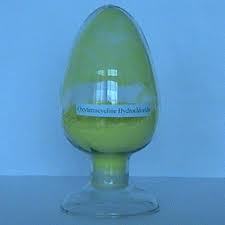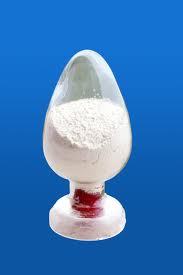Magnesium Citrate
Product Details:
- Shelf Life 2 Years
- Efficacy Promote Healthy & Growth
- Dosage Guidelines After Food
- Dosage Form Powder
- Storage Instructions Room Temperature
- Click to View more
Magnesium Citrate Price And Quantity
- 25 Kilograms
- 25.00 - 50.00 INR/Kilograms
Magnesium Citrate Product Specifications
- After Food
- Promote Healthy & Growth
- Room Temperature
- 2 Years
- Powder
Magnesium Citrate Trade Information
- Cash in Advance (CID) Cash Advance (CA)
- 1000 Kilograms Per Day
- 7 Days
- Australia South America Eastern Europe Western Europe Middle East Africa Asia Central America North America
Product Description
Citrate of magnesium is a magnesium salt containing citric acid in a 1: 1 ratio (1 magnesium atom per citrate molecule). As a result, magnesium citrate is sometimes mistaken for other salts, such as trimagnesium citrate, which has a magnesium: citrate in 3: 2 ratio.
Applications Or where it is used:
A mineral supplement is used for treating and preventing low blood magnesium levels. Symptoms of too much stomach acid, such as stomach upset, heartburn, or acid indigestion, can also be treated with some brands.
How to use:
Usually with other products, this product is used to clean the intestines prior to surgery or certain intestinal procedures (e.g., colonoscopy, radiography). Also, it may relieve constipation. Constipation can be treated using milder products (e.g. stool softeners, bulk-forming laxatives) whenever possible. It is a saline laxative that increases the fluid in the small intestine. You will usually notice intestinal movement within 30-to-3 hours. Among the uses of Magnesium citrate are:
- Bowel evacuation
- Constipation
- Bowel Irregularity
- Nutritional supplement and treats acid indigestion
Dosage of usage:
You can take magnesium supplements at any time of the day, as long as you take them consistently. Some people may find that taking supplements in the morning is easiest, while others may find that taking them with dinner or before bed works for them
Side effects:
The adverse effects of magnesium citrate include abdominal discomfort, nausea, gas, and cramps. Magnesium citrate tends to have mild side effects, but if you experience severe symptoms or haven't had a bowel movement within three hours, you need to see a doctor
Warnings and precautions while using this product:
The use of magnesium citrate is generally safe for adults who do not have any health problems and use it only occasionally. People using magnesium citrate should drink plenty of water since it draws water from other areas of the body into the intestines

Price:
- 50
- 100
- 200
- 250
- 500
- 1000+










 : nilesh.sheth70
: nilesh.sheth70
